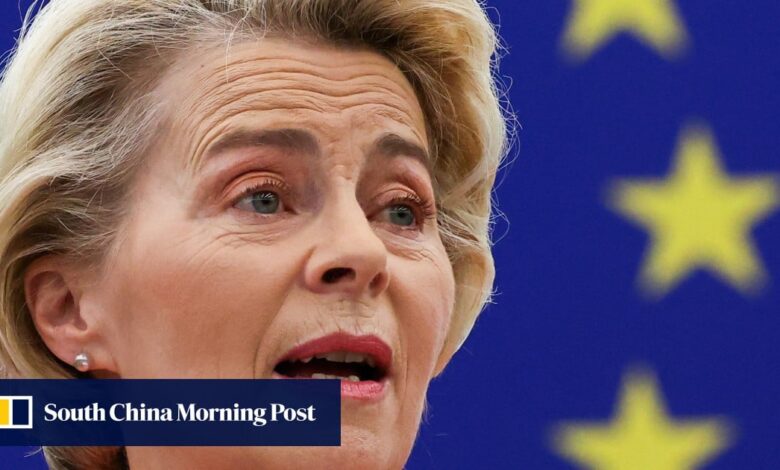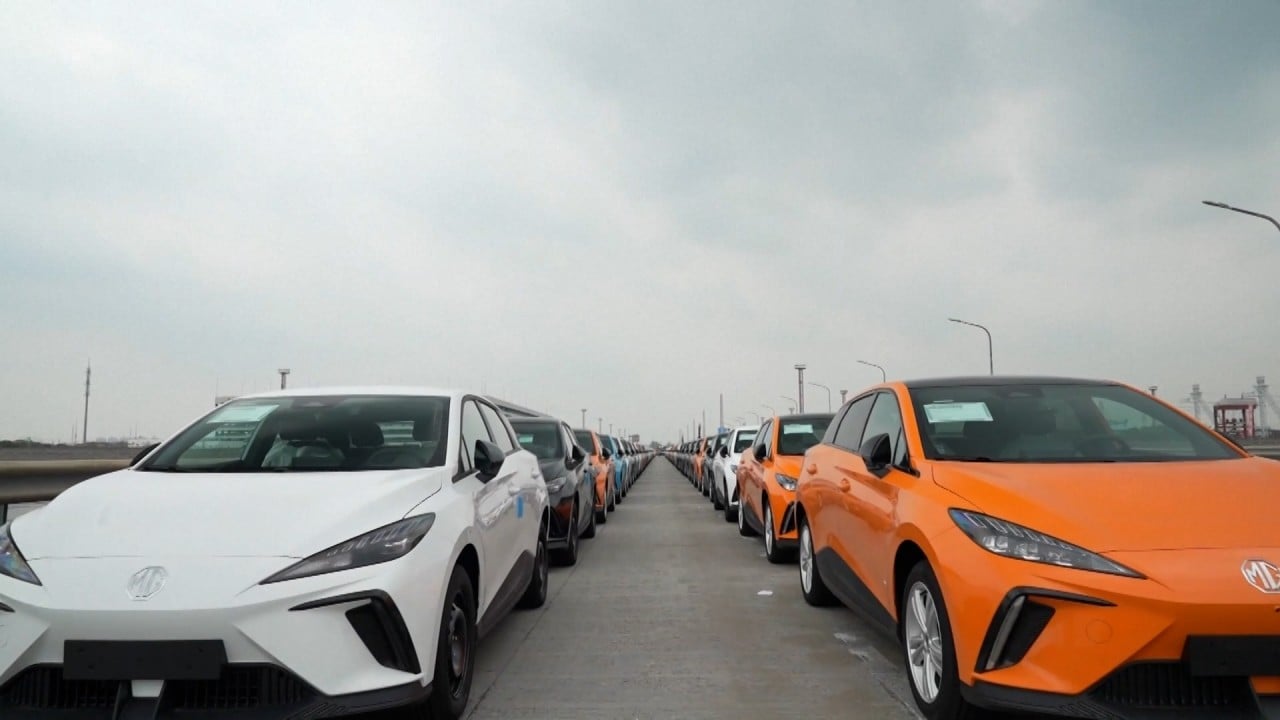EU to probe ‘floods’ of cheap Chinese electric vehicles sparking fears of trade war

[ad_1]
“We have not forgotten how China’s unfair trade practices affected our solar industry. Many young businesses were pushed out by heavily subsidised Chinese competitors, pioneering companies had to file for bankruptcy,” von der Leyen said.
“And as we do not accept this distortion from the inside in our market, we do not accept this from the outside. So I can announce today that the commission is launching an anti-subsidy investigation into electric vehicles coming from China,” she added.
China has leapfrogged Japan as the world’s largest car exporter, and European automotive companies are increasingly concerned about their ability to compete with what they see as heavily subsidised Chinese competitors.
The investigation could eventually result in additional tariffs imposed on Chinese electric vehicles entering the European market, which could in turn provoke a response from Beijing at a time when trade tensions are already running high.
“Europe is open to competition but not for a race to the bottom. We must defend ourselves against unfair practices. But equally it is vital to keep open lines of communication and dialogue with China because they are also topics where we can and have to cooperate,” von der Leyen said at the European Parliament in Strasbourg.
The move on electric vehicles can be seen as a sweetener for French industry, which has been pushing Brussels to be more aggressive in its trade policy, particularly on electric vehicles. In recent years, the bloc has developed a suite of trade defence instruments designed to counter non-market economies like China’s, but it has often been reluctant to use them.
The cumulative impact of the pandemic and Russia’s invasion of Ukraine, however, has ushered a more combative economic mood in Brussels and beyond. Industrial policy is back in vogue, and measures that would previously have been dismissed as protectionist among free-trade evangelists are now seen as vital tools in creating a more resilient single market.
Biden plan to curb China investments focuses EU minds as deadline looms
Biden plan to curb China investments focuses EU minds as deadline looms
In Paris, such policies have rarely lost their lustre. “Finally Brussels is catching up with us!” said one senior French diplomat, speaking on background. “Industrial policy is no longer a dirty word.”
Thierry Breton, the EU’s internal market commissioner seen to be close to French industry, previously said he was “very much in favour of opening a dumping investigation into electric cars as soon as possible”.
On Tuesday, French Economy Minister Bruno Le Maire said he would attempt to coax a reluctant Germany on board with France’s vision to build up EU industrial policy to protect European businesses.
“We’re better off working hand in hand [to develop] a much more proactive [and] innovative industrial strategy,” that would “better protect our industrial interests relative to China and the US”, Le Maire told French media LCI.
It is not the first time von der Leyen has used the state of the union address to launch policies aimed at China.
In 2021, she surprised even her own team by announcing that the EU would ban products made using forced labour from the single market. Subsequent legislation did not name China, but officials privately admit it was inspired by allegations of mistreatment of Uygur workers in China’s far western region of Xinjiang.
[ad_2]
Source link






